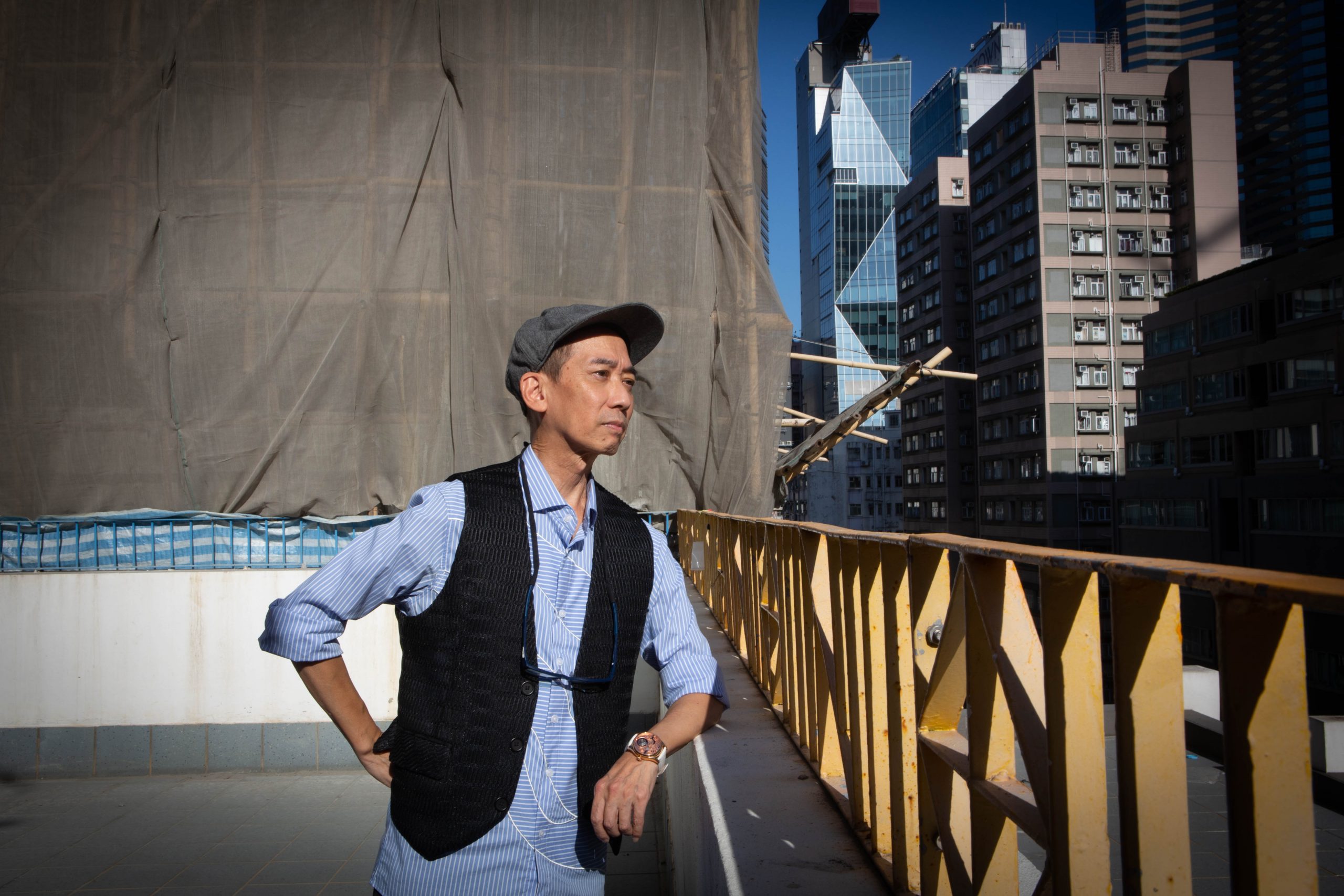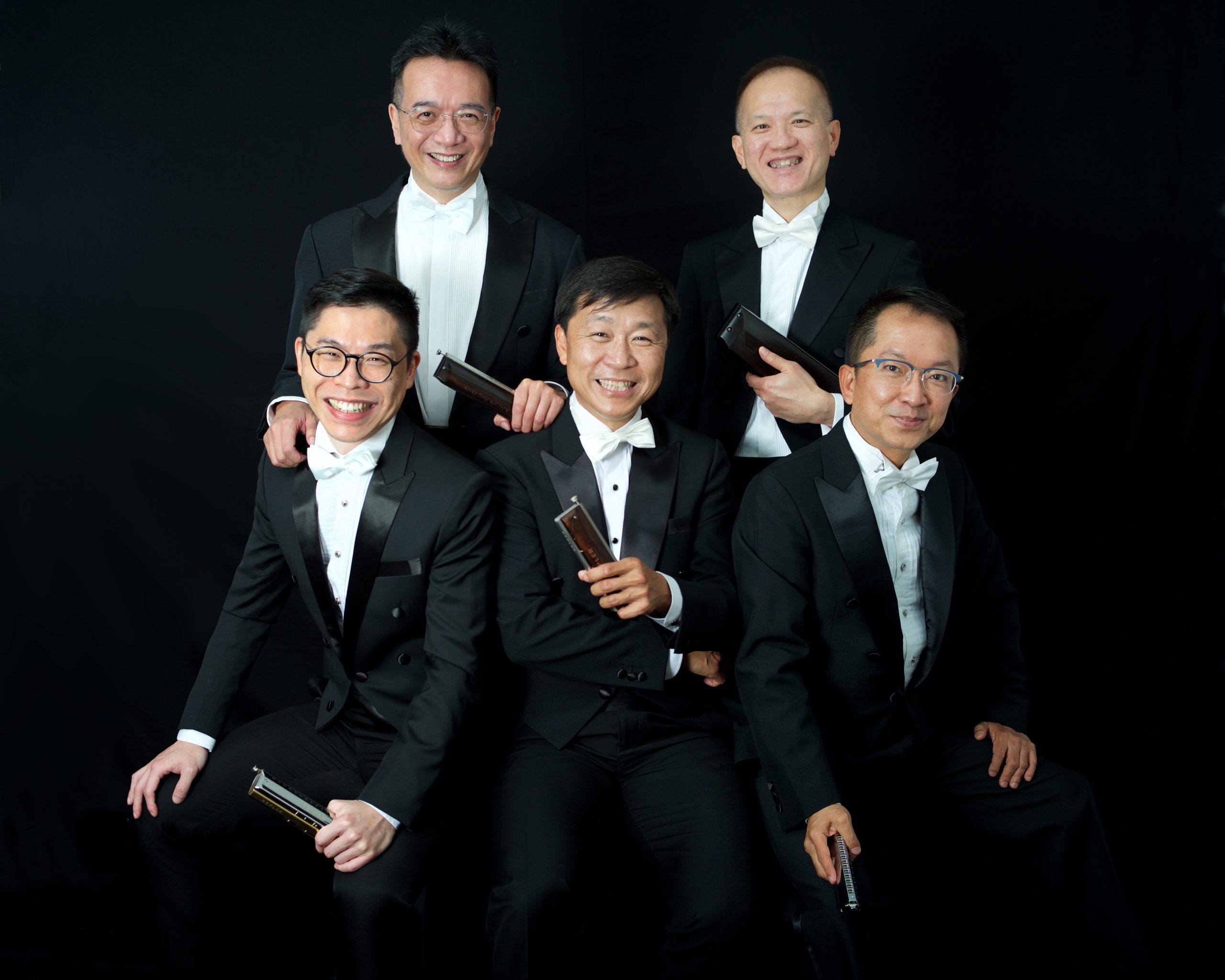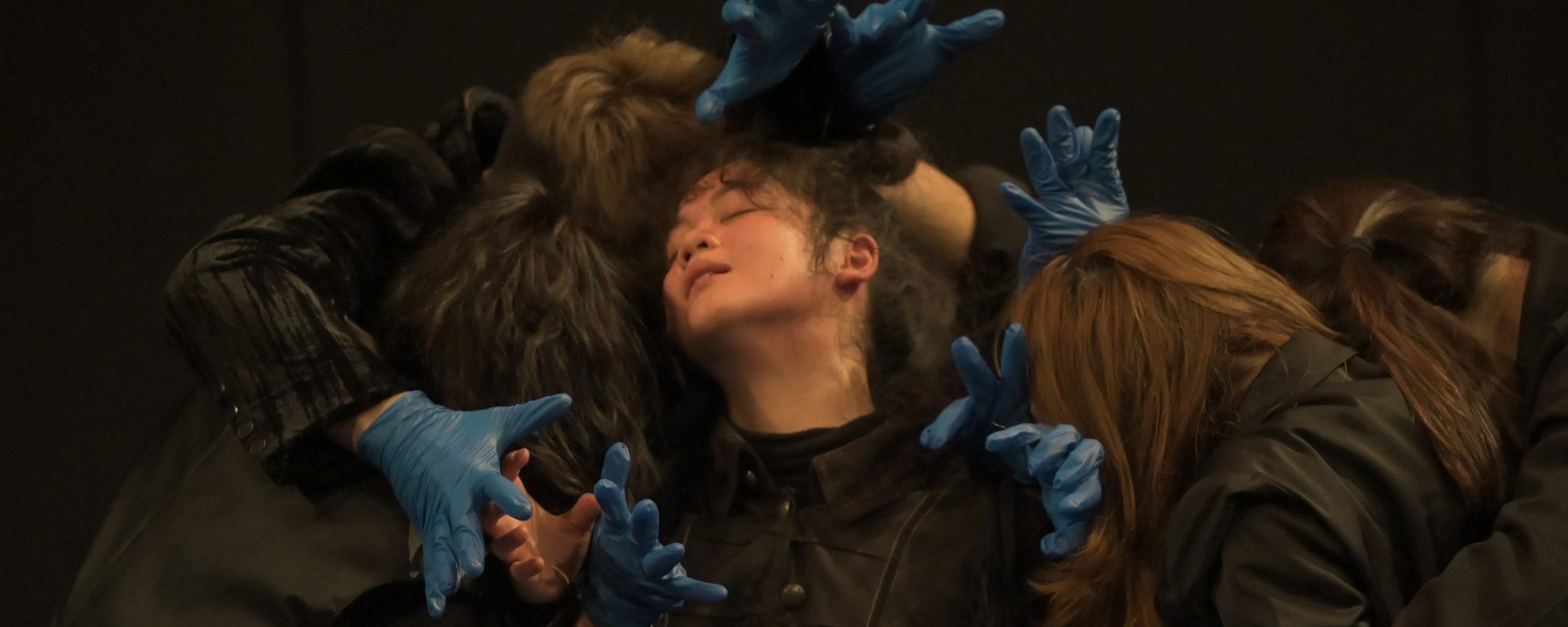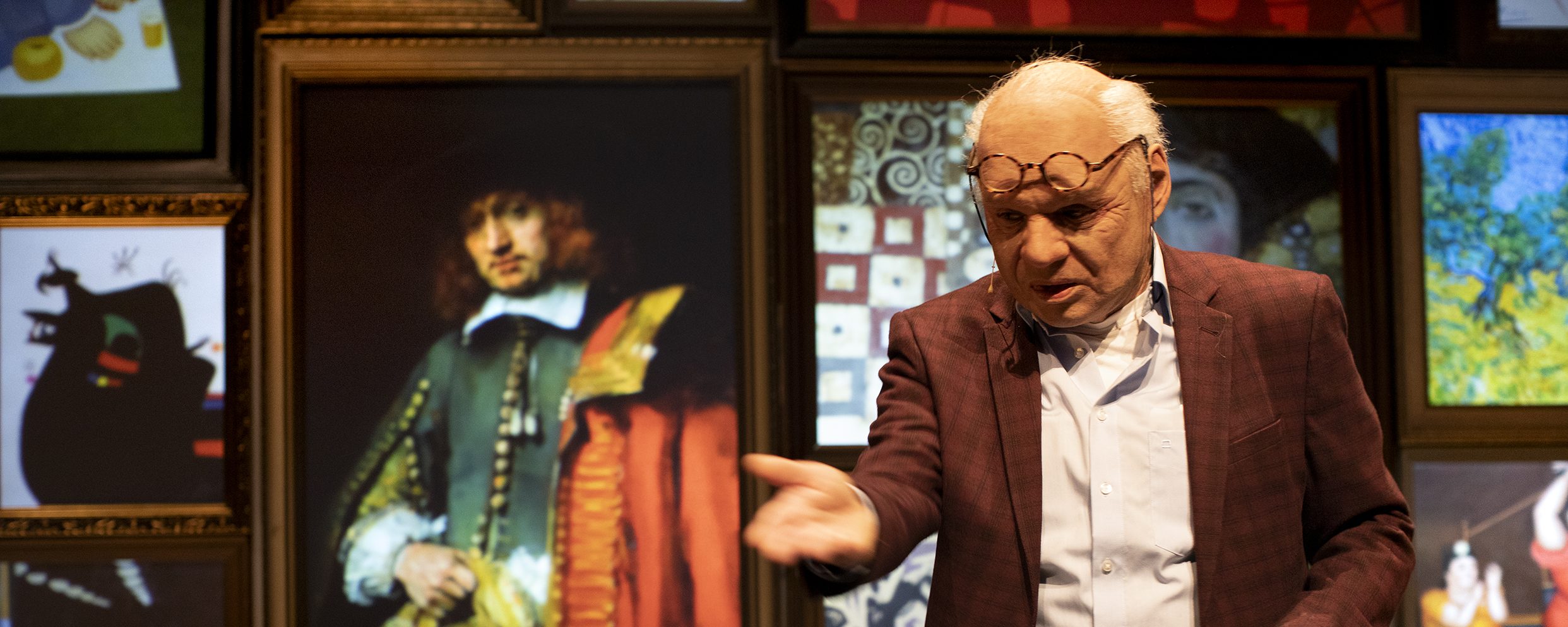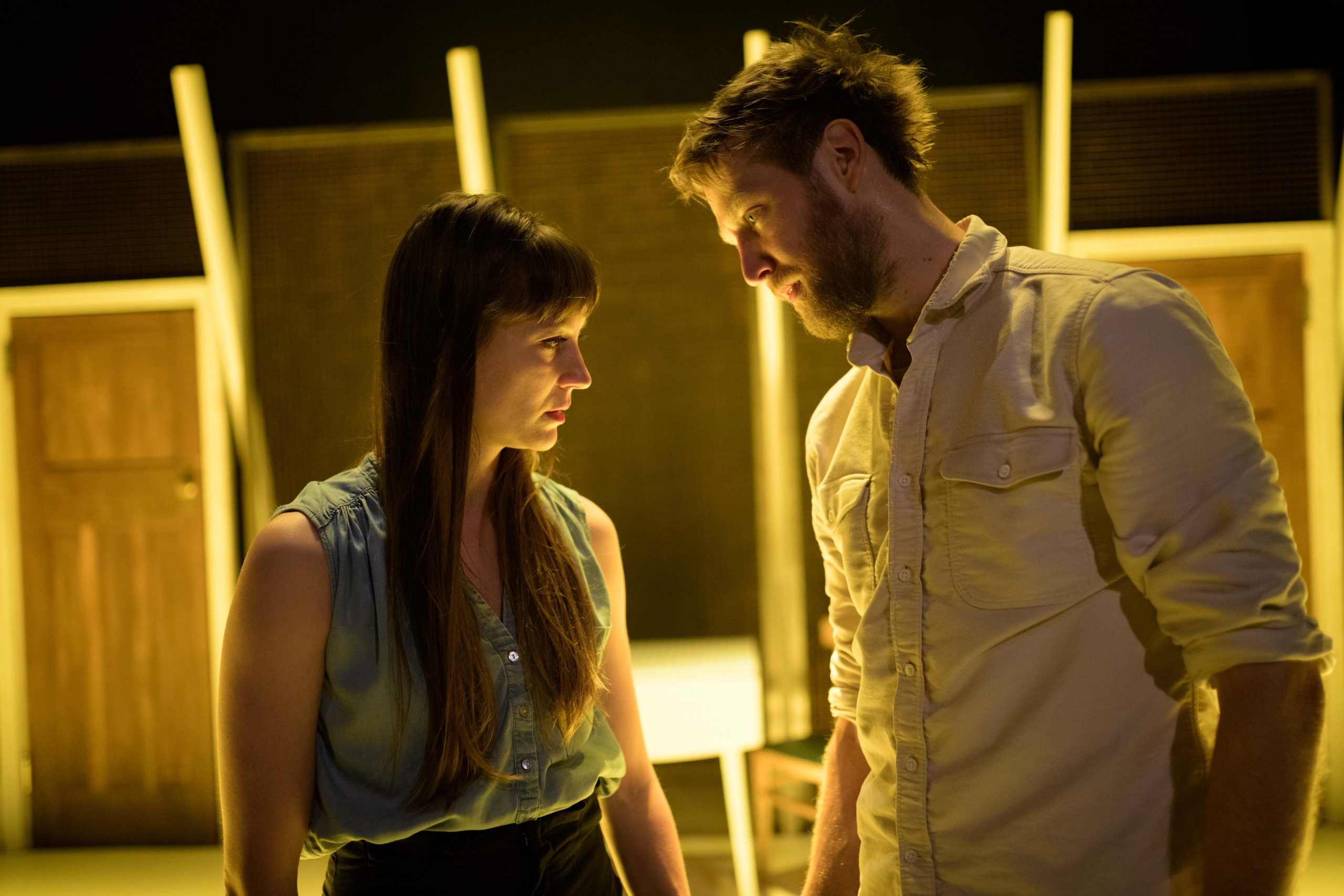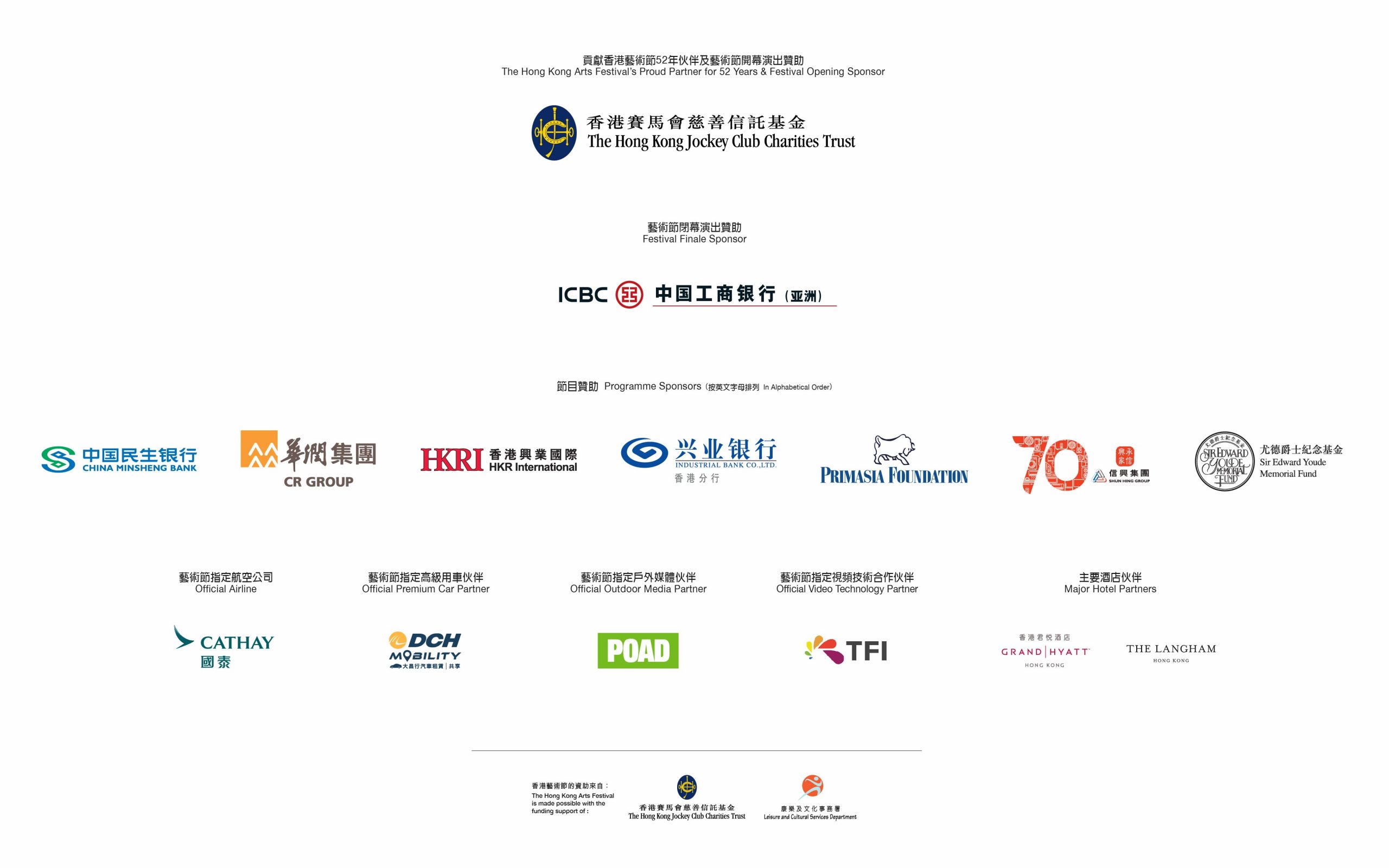As the time approaches for our scheduled interview, Cheung Tat-ming slowly walks up to the indie bookstore, glancing at his watch. Not one second early, or late, Cheung is precisely on time.
The tourbillon watch on Cheung's wrist, which he designed after combating a fatal illness, has served as a sort of personal manifesto ever since.
The face of the watch is carved in relief with a drama protagonist wearing a fedora, while the hour and minute hands respectively are decorated with the theatre's classic comedy and tragedy masks. When the hands hit the 12 o'clock position, the character's face is covered by one of the masks.
Sadness and joy, tears and laughter, what more is needed to formulate the sum of life?
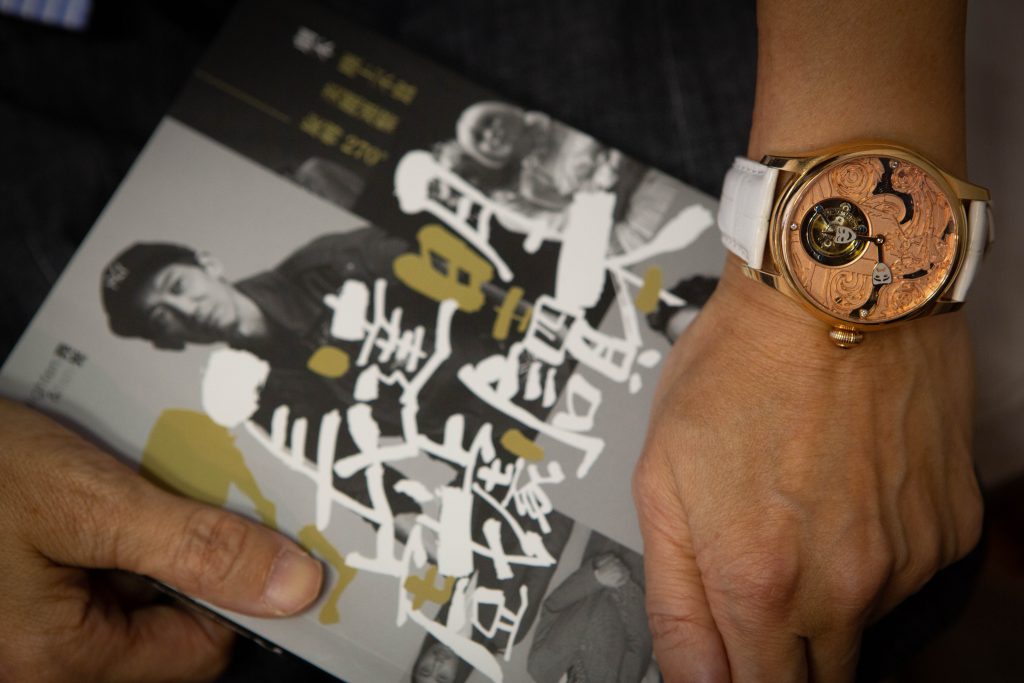
"In a day of 24 hours, there are 22 times with a happy face and two times with a sad face. To me, this means that life involves more joy than sorrow. Adversity and hardship are inevitable, but it is up to us to choose whether to face this with laughter or tears." As Cheung eagerly recounts the thoughts behind his latest play, he also reveals much about his outlook on life. The sunlight shifts through the window and falls on Cheung's face. He squints his eyes, smiles, soaks up a roomful of warmth, and I see the face of a seasoned, unflappable man.
In 2011, Cheung received the most ironic gift from God. At the peak of a promising career, he was diagnosed with nasopharyngeal cancer. Assiduous as ever, he extended his strict ethical standards from theatre into his life itself, waging a seven-year battle against the disease, only to find himself in dire straits. Although physically frail, mentally he was not only undefeated, but even empowered. Now, his desire to create has never been stronger.
"I've been putting my own experiences and feelings into the performing arts, exploring storytelling techniques, discovering methodologies to engage the audience and finding the best way to tell the story.'
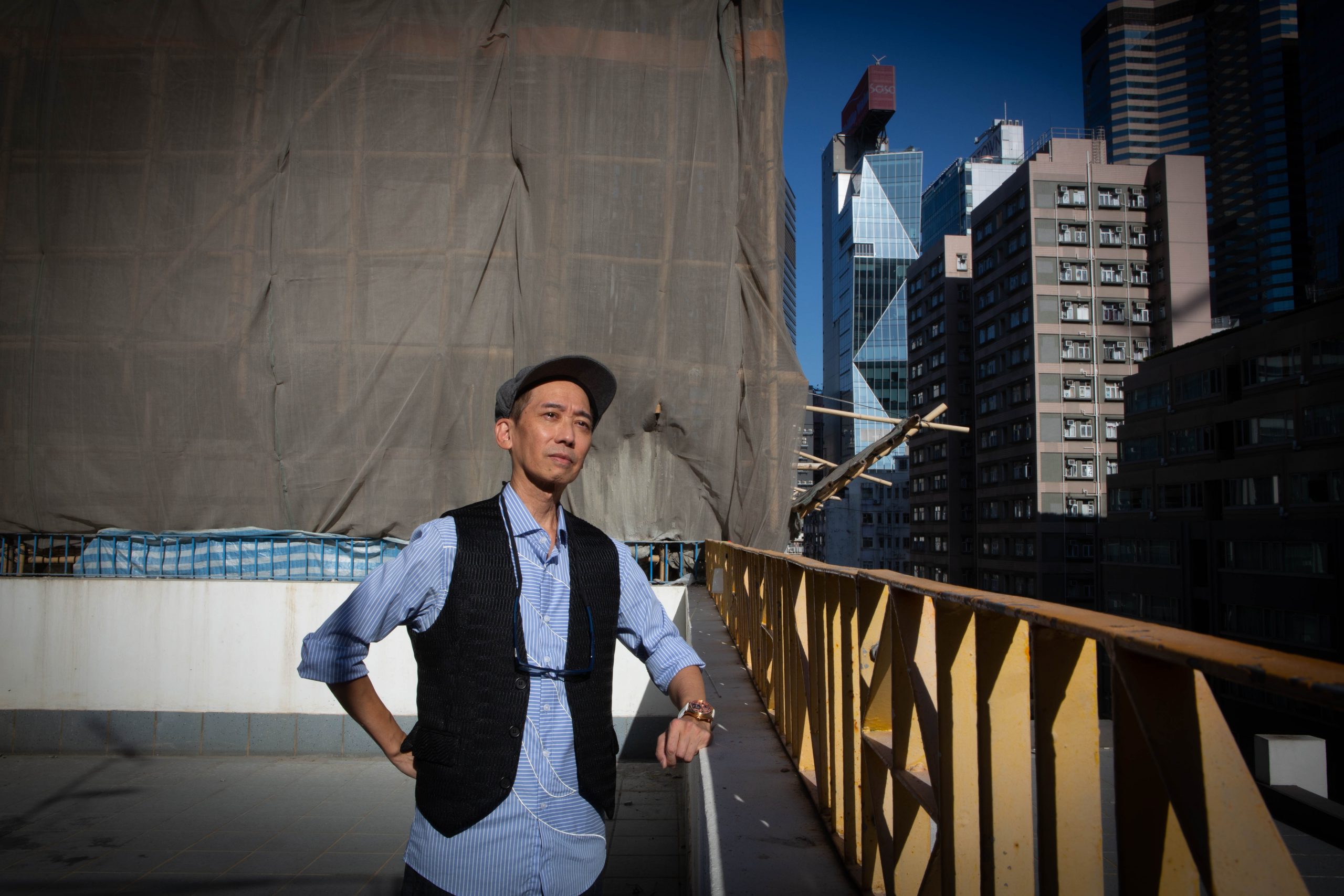
Tick-tock. The clock swings back 30 years.
Cheung's debut film, Far Away Home, won the award for Best Director and Best Original Script at the first Hong Kong Drama Awards. "For someone like me who totally lacked experience and was never trained as a playwright or director, the extent of the recognition—getting to the top in Hong Kong—was simply miraculous." It seems like yesterday as Cheung recalls these moments from that defining year in 1992.
Cheung's film dealt with a Hong Kong family's struggle to emigrate. The father, who lost his wife many years before, wants to find a new bride in his mainland China hometown. One of his two sons is preparing to move to another city, while the other decides to stay. How will the two generations manage to further their lives in three different locations? Several decades may have passed, but the script now seems to resonate even more with the current reality in Hong Kong. "You have to retain a sense of society before you can deal with the subject," says Cheung.
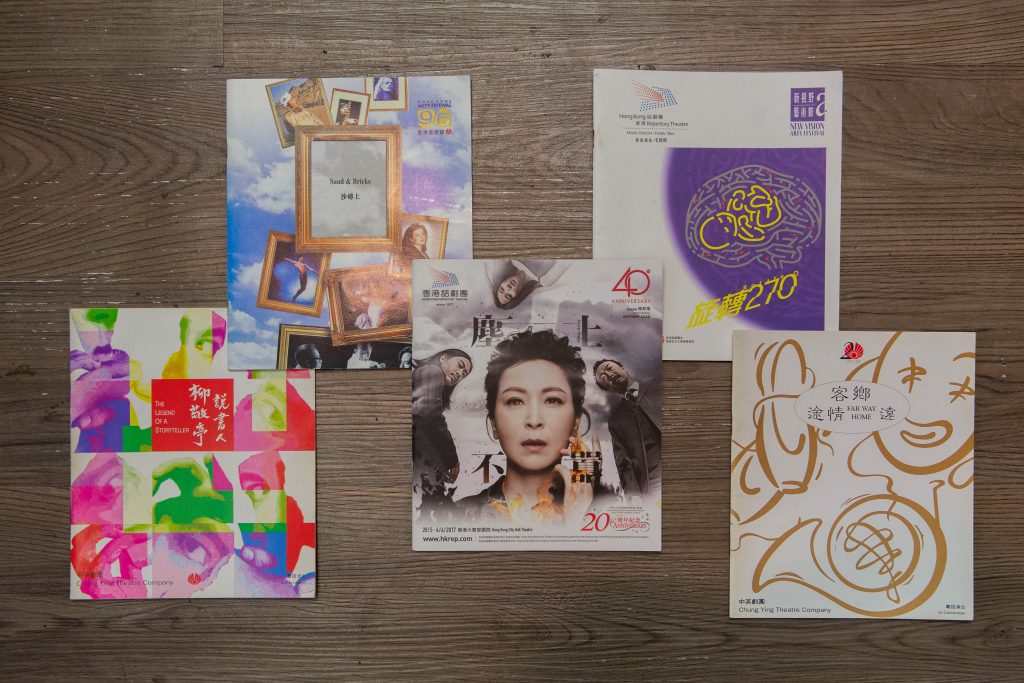
Devoting tremendous amount of time for one fine work
In 2023, Cheung collaborates with the Hong Kong Arts Festival for a new play, Loveless Romance,He describes himself as a slow worker—this play consumed three years of his life as he worked meticulously like a sculptor working his chisel during the pandemic. "I'm not the kind of person who can rush a fine script. I need time to let it all sink in. I don't like writing pure stories, but plays, due to my background in acting. I enjoy composing different scenes that can challenge the actors."
Loveless Romance is the second work in Cheung's "Separation" trilogy and it is about "last love". In the first work, Forever Silence, Cheung was commissioned by the Hong Kong Repertory Theatre to write the script and direct the play. It tells the story of erotica writer Elis 'sudden resolution to becoming a nun. Performed by Louisa So, the protagonist reveals various secrets about life and death. In the secular life, everyone has their own obsessions and unsolvable problems. Forever Silence appears to be a fatal tragedy.
"Loveless Romance is a story full of tragic moments, but it's not a tragedy itself." Never one to write for the market or follow trends, Cheung only writes about things he's encountered firsthand, holding the belief that life experiences can help evoke poignant reflections in the arts. Since his medical scare, Cheung has developed a better grasp of life and death and subsequently infused those realisations into the new work.
"Last love and lovelessness are two distinct concepts. Last love is the opposite of first love. Just like the last day and a dead end, last love can be understood as the final romantic relationship in one's life. So how about lovelessness? What kind of commitment should it be and is there anyone to fulfill it? Does love really vanish at the end? The audience can find their own answers."
Loveless Romance is a heartwarming rendering of illness, death and love. A couple in their 50s live happily and peacefully together until the woman is diagnosed with terminal cervical cancer. As death draws near, she coincidentally discovers her other half is having suicidal thoughts. In this tale of togetherness set in turbulent times, is love doomed to fade, just like the many destined breakups throughout history? Will the lovers succeed in finding a way out? By asking these questions, Cheung hopes to reflect on himself through the play.
Born in Hong Kong in 1964, Cheung started performing xiangsheng (cross-talk, a type of Chinese comedy from the 1800s) at school festivals while still in primary school and formally participated in town theatre productions while in secondary school. Since embarking on his professional career in 1988, Cheung has appeared in countless films, acted in multiple TV series and stage productions, hosted broadcasting shows, and worked as director, playwright and producer. His many iconic characters including Justice Sung, Bucktooth So, Golden Chow and the emperor in Stephen Chow's renowned Forbidden City Pop, have made Cheung tat-ming a household name among fans of Hong Kong movies and TV dramas. But although this versatile artist has worn many hats, playwriting has always been his favourite.
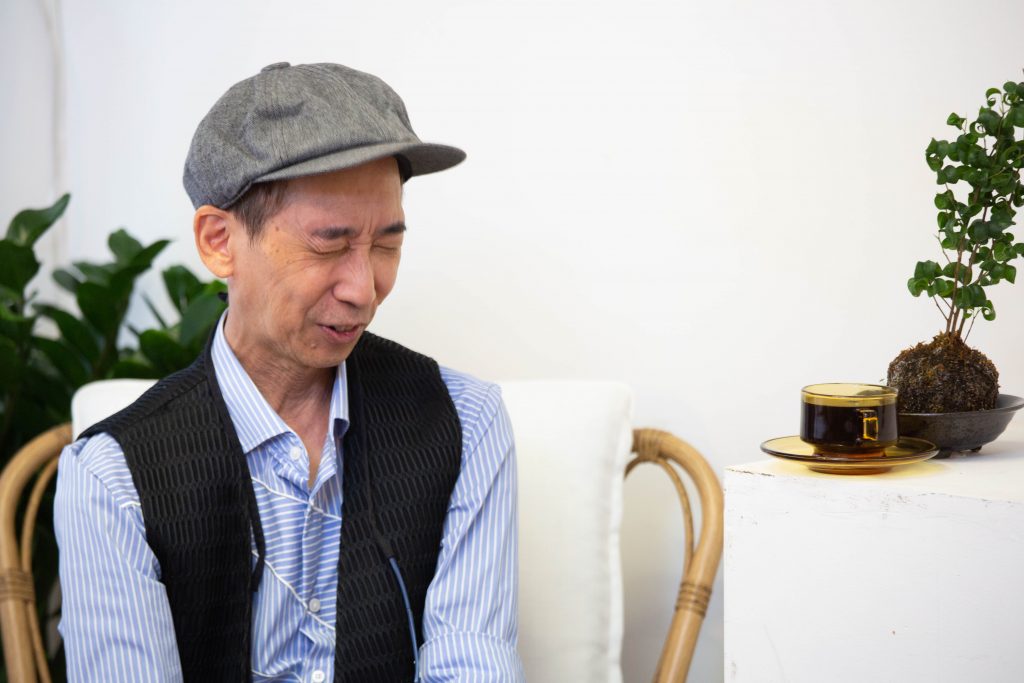
In sickness and mental health
Cheung has scripted nearly 20 plays, most of which are rooted in realism. He has also published his repertoire so that the literature can be passed down and reach more people.
"I enjoy writing scripts because it allows me to contemplate, fathom and decode the puzzles in my life. As I become older and more experienced, I turn my pen into an uplifting one." All humans are looking for love, but in a world of materialised relationships, can it survive when confronted with crisis and ill health? What if we invent a machine that can detect real, genuine love, and with a quick scan can determine whether two lovers will stay together forever or fall apart after a fervent romance? This are the questions Cheung hopes to ask with his new work.
In 2019, Cheung won the award for Best Supporting Actor at the 39th Hong Kong Film Awards for his performance in I'm Living It. "I wasn't acting, but rather just being myself," Cheung says with a self-congratulatory smile of his portrayal of a sick man in the film.
The diagnosis of nasopharyngeal cancer in 2011 dragged Cheung down from heaven to hell. Believing that "every single day is a bonus", Cheung strived to undergo medical treatments and live well, while working even harder to make new discoveries in his daily life and persisting with his creativity. Before our interview started, Cheung told the author to speak as loudly as possible, as his hearing remains impaired after the cancer treatment.
"I am the one in a million who suffers from precious metal poisoning, with the platinum level in my body 63 times higher than average. This has damaged my nerves, made my feet numb and weak, and caused muscle atrophy and degeneration in my legs, so I walk very slowly." I remember the news reports saying that Cheung's weight had dropped to 100 pounds (45 kg) at the height of his illness, that he had trouble holding chopsticks while filming A Home With A View due to the severe pain, and that he had even chosen a funerary urn. This sudden health crisis almost crushed Cheung, not only physically but also mentally.
"But if I had never been sick, I wouldn't have paid attention to my diet, worked out or rested up. I might have continued the same adventurous lifestyle and died in a car race." Cheung also reveals that he is no stranger to extreme danger. "Diving almost took my life, not once, but twice, including a possible barotrauma caused by mis-operating the air tank when I chased after a sea turtle." Cheung sees every life-threatening moment as a revelation from God empowering him to continue his artistic journey. The deepened understanding of life and death he has developed over the years has equipped Cheung with a new energy, and also enriched Loveless Romance, both symbolically and practically. As the creator of the story, it makes sense that Cheung should also direct this intimate narrative on stage.
By accepting the impermanence of life, Cheung has been able to turn tragedies into motivation. Despite being on medication, he performed stand-up comedy at the Sunbeam Theatre and was even wire-flying. It is better laugh than to complain, he believes. As an actor, playwright, director and producer, Cheung best enjoys writing and directing the same story, which is something "complicated yet beautiful". "In fact, living in a distressing city like Hong Kong can make any of us sick. Living with sickness is perhaps the new normal."
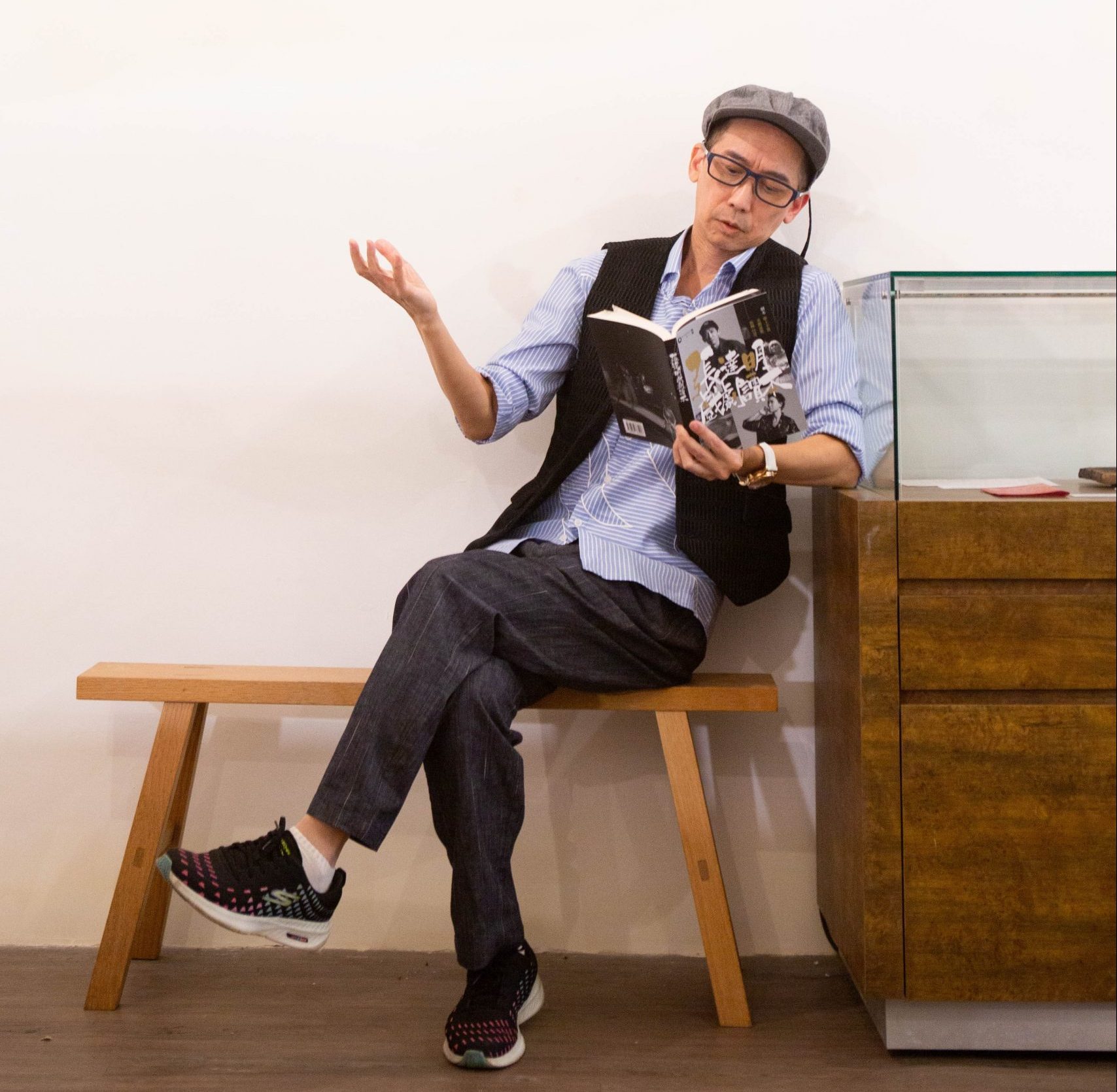
Turning grief into strength, it's better to laugh than cry
Sipping his coffee, the gentleman sitting across from me describes a supposedly agonising medical routine while completely at ease, almost in a joking manner. He compares chelation therapy with bleach, washing the platinum from his body; and recalls a doctor instructing him to stand in a certain position at a specific time. 'He said to give me power so that I was cured by qigong, and asked if there was a phone signal at my location. No, the last line was made-up," Cheung says with a giggle. What seems like a lighthearted moment now must have been painfully miserable at the time.
I think of Charlie Chaplin, the timeless comedian whose slapstick routines were imbued with pathos. While facing the vagaries of fate, we ordinary mortals can do nothing but live with optimism. A sense of humour can do much to dilute the bitterness of life, as suggested by Chaplin's famous words: "Life is a tragedy when seen in close-up, but a comedy in long-shot."
The minute hand is at 12 o'clock and the protagonist on Cheung's watch is wearing a smiling mask. As Cheung leaves the bookstore, I watch him totter away until he vanishes from sight.
In such turbulent times, Hong Kong people need to remain optimistic no matter how hard life is. The spirit of Cheung Tat-ming is much needed.
Acknowledgements: Thank you Word by word collective Limited for providing the venue
Loveless Romance
Detail: https://www.hk.artsfestival.org/en/programme/lovelessromance
